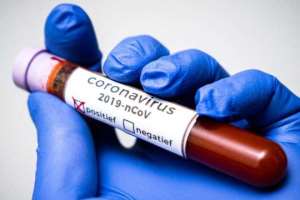
Once again, Africa and its allies are protesting the unequal distribution of global resources. This time, the subject is vaccines.
The West-- and East, are being accused of shortchanging Africa in the distribution of vaccines.
As things stand now, Africa, according to AU Chair President Ramaphosa, is due to receive, through the WHO Covax facility and the AU Covid Task Force, 1 billion Covid vaccine doses by the end of 2021. These doses would not be enough for the 1.3 billion Africans-- even if allowance is made for the large population of the youth.
Even before the vaccines though, there were disparities around this pandemic.
Initially, Africa seemed relatively safe from the worse of this pandemic. Indeed, some began to praise Africa for its response and to credit our supposed strengths in public health, based in part, on lessons learned from Ebola and other outbreaks. In truth, the light imprint of the disease had little to do with what we were doing. It is more likely that the low burden of disease was due to our young population, lack of sanitation infrastructure and failure to test.
The failure to test was particularly egregious.
By the end of January, Africa had done about 30 million tests for our 1.3 billion citizens while the United States had done 385 million tests for its 300 million citizens! And some African countries tested goats and fruits while denying the very existence of Covid till some leaders died!
It turned out that we had too few ventilators.
A New York Times report last year, as the pandemic ramped up, stated that Sub-Saharan Africa had only about 2 thousand ventilators outside of South Africa, which also had 2000. Indeed ten African countries had none! As one wag put it, many African governments had more SUVs than ventilators.
Then we got complacent.
We started being lax about quarantines and public gatherings including campaign rallies and protests and large religious gatherings. The results were predictable.
In addition to the inequities of tests and ventilators and vaccines, there are other inequities we must confront.
This pandemic has exposed, not just inequities in tests and ventilators and vaccines but also in leadership, media efficacy, and civil society activism.
Our governments could have done better with testing and masking and contact tracing and isolation. While some of those required resources a lot more imagination and will were needed than resources. And while others were researching, planning, and pre-ordering vaccines, we should have been in the markets, looking to do pre-orders instead of waiting for handouts. The argument that the leaders of the US, EU, Russia, and China should have thought of Africa while researching and procuring vaccines for their populations invoke unfortunate echoes of paternalism.
While the US and European media were aggressively questioning the policy choices of their governments, our media, for the most part, was lapping up whatever governments chose to put up. They covered political gatherings without questioning their wisdom in the light of the pandemic.
And our civil society groups did little to demand more action.
Finally, while this is a global pandemic in a global village and the world must work collaboratively, we can and should do more for ourselves. A man who relies on his in-laws to care for his wife and children should not be surprised that they do not accord him, completely, the respect he is entitled to.
The essence of "Africa beyond Aid" is the willingness to do more for ourselves.
May God bless Africa.
Arthur Kobina Kennedy, MD.
( 8th February 2021)




 Akufo-Addo commissions Phase II of Kaleo solar power plant
Akufo-Addo commissions Phase II of Kaleo solar power plant
 NDC panics over Bawumia’s visit to Pope Francis
NDC panics over Bawumia’s visit to Pope Francis
 EC blasts Mahama over “false” claims on recruitment of Returning Officers
EC blasts Mahama over “false” claims on recruitment of Returning Officers
 Lands Minister gives ultimatum to Future Global Resources to revamp Prestea/Bogo...
Lands Minister gives ultimatum to Future Global Resources to revamp Prestea/Bogo...
 Wa Naa appeals to Akufo-Addo to audit state lands in Wa
Wa Naa appeals to Akufo-Addo to audit state lands in Wa
 Prof Opoku-Agyemang misunderstood Bawumia’s ‘driver mate’ analogy – Miracles Abo...
Prof Opoku-Agyemang misunderstood Bawumia’s ‘driver mate’ analogy – Miracles Abo...
 EU confident Ghana will not sign Anti-LGBTQI Bill
EU confident Ghana will not sign Anti-LGBTQI Bill
 Suspend implementation of Planting for Food and Jobs for 2024 - Stakeholders
Suspend implementation of Planting for Food and Jobs for 2024 - Stakeholders
 Tema West Municipal Assembly gets Ghana's First Female Aircraft Marshaller as ne...
Tema West Municipal Assembly gets Ghana's First Female Aircraft Marshaller as ne...
 Dumsor is affecting us double, release timetable – Disability Federation to ECG
Dumsor is affecting us double, release timetable – Disability Federation to ECG
